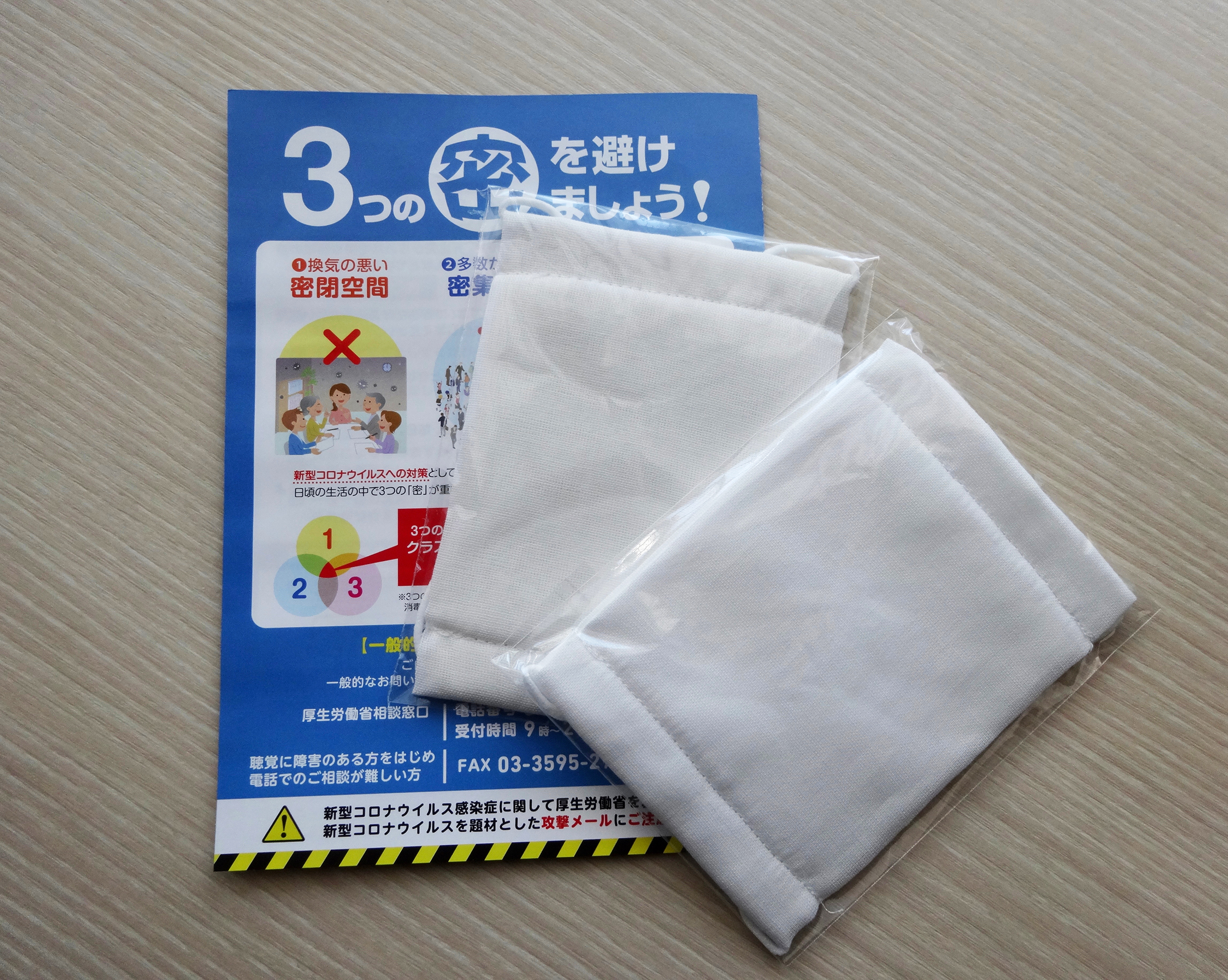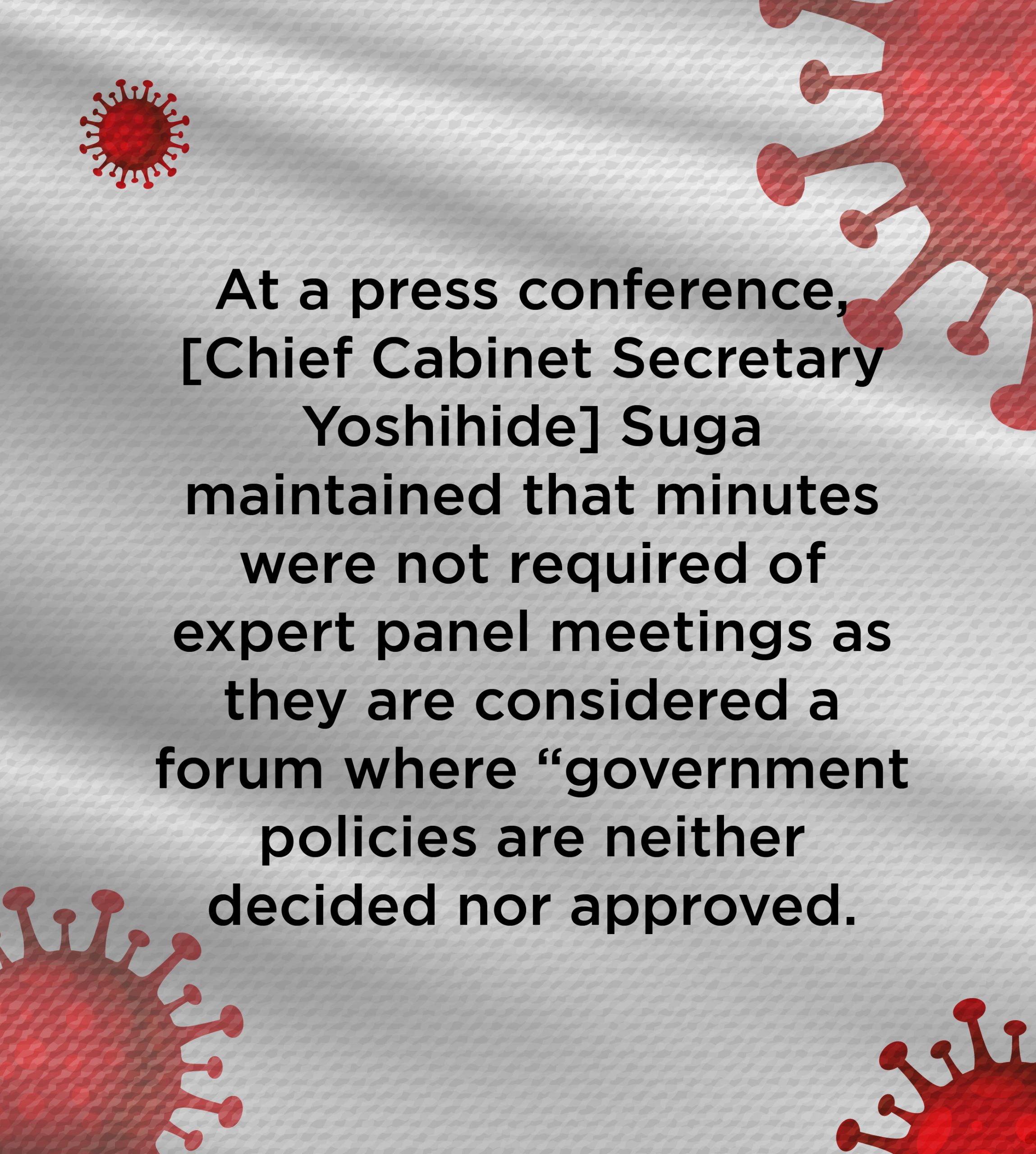At first glance, Japan seems to be winning the battle against COVID-19. The country’s total confirmed COVID-19 deaths per million people was 8.68 as of 17 August, much lower than that of the US (513.75), Brazil (507.4), and many European countries.
However, when compared to the COVID-19 death toll of its neighbors, Japan’s figure is not impressive. Taiwan has 0.29 COVID-19 deaths per million people. South Korea’s figure is 5.95.
In fact, it seems that the Japanese government is making poor decisions in the battle against COVID-19. Since the beginning of July, the number of infected people in the country began to rise again, reflecting the trends in other parts of the globe. Yet amid this surge of infection, the government kicked off the ¥1.35-trillion Go To Travel campaign in July. The discount travel campaign gives domestic tourists subsidies for hotels, transportation, and restaurants to boost local economies. The poor timing of this campaign was met with widespread criticism, not only from opposition parties but also from some local leaders and pro-government media.
From April to July, the government also distributed two washable gauze masks to each Japanese household. These masks have been sarcastically dubbed “Abenomasks” (“Abe’s masks”), a pun on Prime Minister Shinzo Abe’s “Abenomics” economic policy. The ill-fitting cloth masks are of poor quality—and they cost taxpayers ¥46.6 billion (US$424 million).
Now, as the mask shortage eases, at least 100,000 Abenomasks have been returned to authorities or donated to private organizations. The government faced harsh criticism from the public for what was a huge waste of taxpayer money. “We don’t need cloth masks,” one woman writes in a message she sent to the prime minister’s office through its official website. “It is a stupid plan that only increases the labor and burden on postal workers.”
Why did the Japanese government make such incoherent decisions? And how? As it turns out, these are difficult questions to answer.
The records “do not exist”
Last May, following freedom of information requests by media outlets, Chief Cabinet Secretary Yoshihide Suga admitted that the government did not keep meeting records of the government’s expert panel for COVID-19. The Cabinet Secretariat had declined all requests because the minutes of these meetings “do not exist.”
At a press conference, Suga maintained that minutes were not required of expert panel meetings as they are considered a forum where “government policies are neither decided nor approved.” He cited a clause from the official guidelines for managing public records based on the Public Records and Archives Management Act.
Yet it was undeniable that the panel had been playing an important role in the government’s decision-making as Abe repeatedly emphasized the “opinions of experts” in his explanations of how the government was dealing with the pandemic.

Each Japanese household received two “Abenomasks” from the government from April to July 2020. The poor-quality masks cost taxpayers a whopping ¥46.6 billion (US$424 million).
Apprehensions about shoddy record-keeping also came from the expert panel members themselves. Shigeru Omi, vice-chair of the panel, told the press that some members were urging the government to create and disclose the meeting minutes on May 29, 2020.
In response to public clamor, the government announced in June that it would “include the names of speakers in the summaries of future meetings of its expert panel on the novel coronavirus.” However, it is silent on the need to keep detailed meeting minutes.
Clear violation
The lack of transparent public records has long plagued the Abe administration. An investigation by The Mainichi, a major news provider in Japan, revealed on April 15, 2019 that the prime minister’s office had created no records of Abe’s meetings with top ministry and agency officials at least over a year.
This violates the official guidelines for managing public records, which require ministries and agencies to keep records of meetings that would affect policy measures and project plans. According to the guidelines, both parties participating in those meetings are able to create records. However, the prime minister’s office has effectively left the job entirely to ministries and agencies.
Following an investigation, at a press conference on June 3, 2019, Suga admitted that the prime minister’s office had kept no records of the meeting. He then conceded that, “Records are to be made and kept as necessary by each administrative organization overseeing policy measures in accordance with the Public Records and Archives Management Act and other rules.”
Meanwhile, those administrative organizations were not necessarily keeping sufficient records of those meetings. When The Mainichi made a freedom of information request for the records of a total of 47 meetings between Abe and senior Cabinet Secretariat officials, the agencies responded that they had not created any records of those meetings.
This deplorable practice of the prime minister’s office “constitutes a clear violation of the guidelines,” said Hiroshi Miyake, lawyer and former deputy head of the Cabinet Office’s Public Records and Archives Management Commission. “Without records, policy decisions made by PM Abe, who has been in office for such a long time, can’t later be assessed. It’s a serious problem in that no historical records will remain,” he added.

Two scandals
In December 2017, the government updated guidelines on public documents, requiring ministries and agencies to keep records of meetings that would affect policy measures and project plans. This was in response to a series of serious misconducts regarding public records.
In February 2017, it became known that the Finance Ministry sold a piece of government-owned land in Osaka Prefecture to Moritomo Gakuen, a nationalist school operator, at a substantial discount. The government sold the 8,770-square-meter plot of land for ¥134 million at a time when it had been valued at ¥956 million.
The land was for a new elementary school, of which Abe’s wife, first lady Akie Abe, was appointed honorary principal. Suspicions abound that the government had offered the steep discount out of favoritism. A scandal ensued and led to an investigation.
By March 2018, the finance ministry admitted that it had destroyed its notes regarding negotiations with Moritomo Gakuen and that it had erased references to Akie Abe in official documents. That same month, an official who had been involved with the deal committed suicide.
In May 2017, another scandal erupted, in which Abe was allegedly involved in the approval process of establishing a new veterinary department at the Okayama University of Science. The university was run by Kotaro Kake, a longtime friend of Abe.
A document, obtained by The Japan Times, quoted Cabinet Office officials as saying “the prime minister’s intent” is to allow a new department to be opened as quickly as possible in Imabari—an apparent reference to the university’s proposal. Prior to Abe’s green light, the ministry had not approved a new veterinary department for more than five decades. The veterinary department at the Okayama University of Science was approved in November 2017.
Other official documents and emails implying that the approval process had been distorted surfaced. However, due to lack of the detailed meeting minutes between the education ministry and the Cabinet Office, the truth remains unknown.
These are the two scandals that have been exposed since the Abe administration came to power in 2012. The Public Records and Archives Management Act stipulates that public records are an “intellectual resource to be shared by the people in supporting the basis of sound democracy.”
However, the Abe administration has trampled on that principle. This means that, when it pertains to COVID-19, no taxpayer can check and assess whether or not the government’s measures save lives. This lack of transparency and accountability affects not only the current generation but also future generations. Without detailed official records, Japan is doomed to forget the lessons of history. ●
Satoshi Kusakabe (@satoshikusa93en) is a deputy editor at The Mainichi Newspapers, a national daily in Japan, and a former journalist fellow at the Reuters Institute for the Study of Journalism.


















